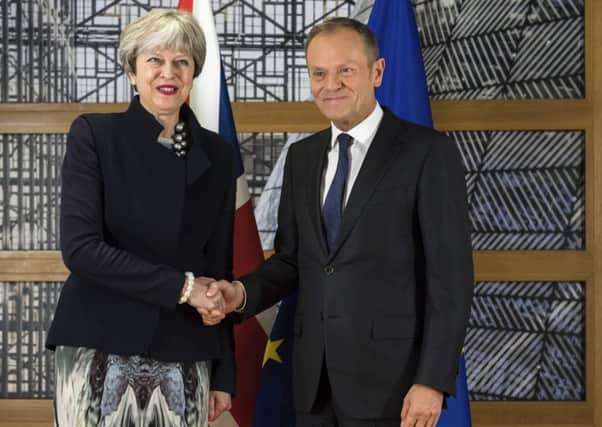Leader comment: '˜Sensible Party' must take control of Brexit


Anyone following the news about Britain’s impending departure from the European Union could be forgiven for thinking that hard-line Brexiteers and the Democratic Unionist Party (DUP) were calling the shots. But, when things get tricky, what might be called the “Sensible Party” is capable of showing its strength.
The Liberal Democrat’s deputy leader Jo Swinson noted yesterday that she “found herself in the rather novel position of being simultaneously in agreement with Ed Miliband, Ruth Davidson and Nicola Sturgeon” over the “Brexit shambles”. Four leading lights of four very different parties of essentially one mind.
Advertisement
Hide AdAdvertisement
Hide AdThe shambles was a situation in which Theresa May’s Government had reportedly struck a deal to make Northern Ireland have “regulatory alignment” with the EU; the DUP were then said to have vetoed the deal – using their power to bring down the Government – because it would put a hard border between the North and mainland Britain.
Ruth Davidson then intervened to say if there was to be any “regulatory alignment” it would have to apply to the whole of the UK. Suddenly Brexit Secretary David Davis was insisting it was a “falsehood” to suggest Northern Ireland was ever going to be “left behind” in the single market.
The phrase “regulatory alignment” appears to be code for a kind of “single market-lite”. No one on the British side seems to want to get into how close, or far away, that would be to staying in the single market, presumably for fear of upsetting the Brexiteers or outraging the EU.
If only the Sensible Party could put aside the differing interests of their actual political parties and work together, even informally, for the good of the nation, then the UK could end up in what is increasingly looking like the best politically possible position for the UK – outside the EU but still in the single market, assuming the Europeans will let us stay. From this vantage point, the UK would be much better able to work out if it should rejoin the EU or leave the single market entirely, a process it would largely control. As things stand, time is running out to strike an all-new trade deal and the ticking clock only favours the other 27 EU countries.